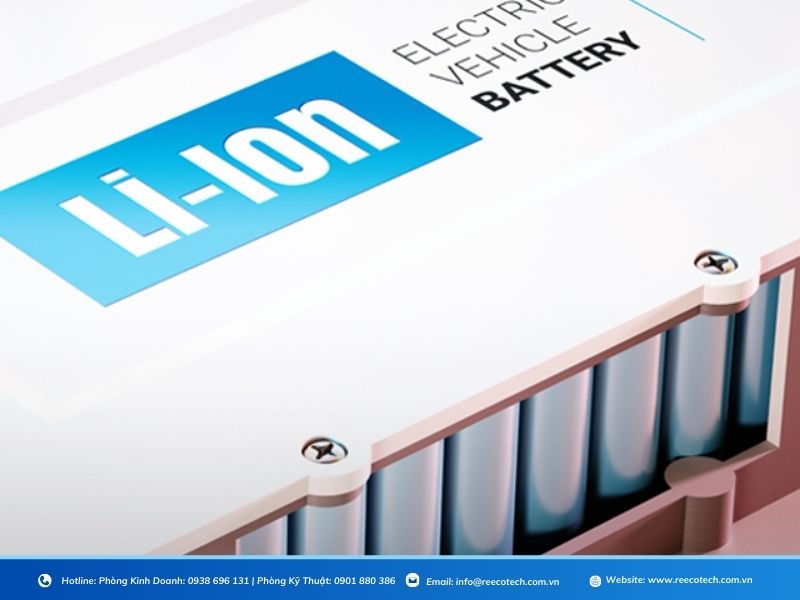Conductivity is a defining property in energy materials, influencing everything from battery efficiency to hydrogen fuel performance. Materials with high ionic conductivity enable faster charge transfer and more stable energy storage. Yet, even slight variations in purity, thermal stability, or environmental conditions can alter performance. To address these challenges, researchers turn to advanced analytical methods that reveal a material’s true conductive potential at the molecular level.
Mass spectrometry offers a precise and detailed approach to quantify conductivity. By examining ion mobility, chemical composition, and temperature-induced changes, this technique uncovers the underlying mechanisms of charge transport. Such insights are essential when evaluating high-potential materials like borane-based compounds, which include metal borohydrides and higher boranes. While these materials promise superior performance in hydrogen storage and solid-state batteries, their sensitivity to impurities requires rigorous analytical scrutiny through mass spectrometry.
How Mass Spectrometers Help Quantify Conductivity
The conductive properties of materials depend on ion transport, structural integrity, and purity. Mass spectrometry provides researchers with critical data on how these factors influence performance.
Detecting Impurities That Affect Conductivity
Trace contaminants such as moisture, oxygen, or chemical byproducts can hinder ion movement and reduce efficiency. Residual gas analysis (RGA) detects even minute impurities, ensuring materials are tested in their purest state for reliable conductivity assessments.
Monitoring Thermal Stability and Decomposition
Materials often exhibit peak conductivity only within specific temperature ranges. If they decompose or release gases when heated, their performance may suffer. Temperature-programmed desorption mass spectrometry (TPD-MS) helps researchers determine temperature thresholds for conductivity stability, leading to better material optimisation.
Borane-Based Materials and Their Conductivity Potential
Among the most highly regarded candidates for next-generation energy applications are borane-based compounds, including metal borohydrides and higher boranes. These materials offer excellent ionic conductivity but are highly sensitive to impurities. Mass spectrometry helps evaluate their true potential by providing detailed insights into their stability and charge transport properties.
Metal Borohydrides: Hydrogen Storage and Battery Electrolytes
Metal borohydrides, such as lithium borohydride (LiBH₄) and sodium borohydride (NaBH₄), are widely studied due to their:
- High hydrogen storage capacity, making them valuable for fuel cells.
- Ionic conductivity, supporting their use in solid-state lithium-ion batteries.
However, borohydrides are highly reactive to moisture, which can disrupt charge transport. Even slight contamination can compromise conductivity, making precise analysis essential. Mass spectrometry ensures these materials remain chemically stable and free from impurities, providing reliable conductivity measurements. Moreover, mass spectrometry tracks thermal decomposition, confirming that conductivity is maintained under operational conditions.
Applications of Conductivity Analysis in Energy Material Development
Assessing how materials decompose and interact with their environment refines their performance for fuel cell applications. Precise measurements enable scientists to optimise hydrogen storage compounds for real-world applications.
Enhancing Hydrogen Storage Systems
To maximise hydrogen storage efficiency, researchers must consider both hydrogen release rates and conductivity stability. Examining chemical stability and decomposition pathways allows for improved material performance in fuel cells.
Reecotech Provides Mass Spectrometry Solutions for Energy Materials Research
As the exclusive distributor of Hiden Analytical in the Vietnamese market, Reecotech offers advanced Quadrupole Mass Spectrometry (QMS) systems tailored for in-depth analysis in energy research, advanced materials science, and high-tech applications.
The instruments distributed by Reecotech are specifically engineered to precisely monitor gas evolution/consumption processes, electrochemical reactions, ion transport, and structural transformations of materials under real operating conditions. With high sensitivity and versatile operating modes, these systems are especially well-suited for rapidly evolving research areas such as:
- Kinetic and ion conduction mechanism analysis in solid-state batteries and solid electrolytes
- Monitoring thermal decomposition, gas-phase reactions, and chemical stability of materials at elevated temperatures
- Hydrogen storage/release characterization in advanced materials such as borohydrides and adsorption-based compounds
- Corrosion mechanism studies, surface transformation, and chemical reactivity analysis in semiconductors, electronic materials, and functional thin films
Key advantages of Hiden Analytical mass spectrometry systems include high sensitivity, real-time response, and modular design, allowing easy integration with peripheral systems such as reaction chambers, microscopes, and electrochemical setups. These capabilities empower researchers to:
-
Elucidate reaction mechanisms and material transformations at the atomic and molecular levels
-
Reduce experimental time and optimize material design for targeted applications
-
Evaluate performance, stability, and lifetime of materials under extreme operating conditions
In the context of global energy transition, materials such as solid-state lithium batteries, inorganic electrolytes, and hydrogen storage compounds are gaining strategic importance. The application of mass spectrometry technologies not only facilitates quality control and deepens material insights but also accelerates the commercialization of clean energy technologies.
With strong technical expertise in applied mass spectrometry for advanced material research, Reecotech delivers comprehensive, end-to-end solutions, including:
-
Consultation on system selection tailored to research goals and directions
-
System installation, calibration, and user training in accordance with international standards
-
Long-term technical support and equipment maintenance
-
Technology transfer and collaborative deployment in real-world applications
Reecotech is committed to partnering with research institutes, universities, and industry across Vietnam in the journey to explore, develop, and implement advanced energy materials — contributing to a future of intelligent, efficient, and sustainable energy use.

